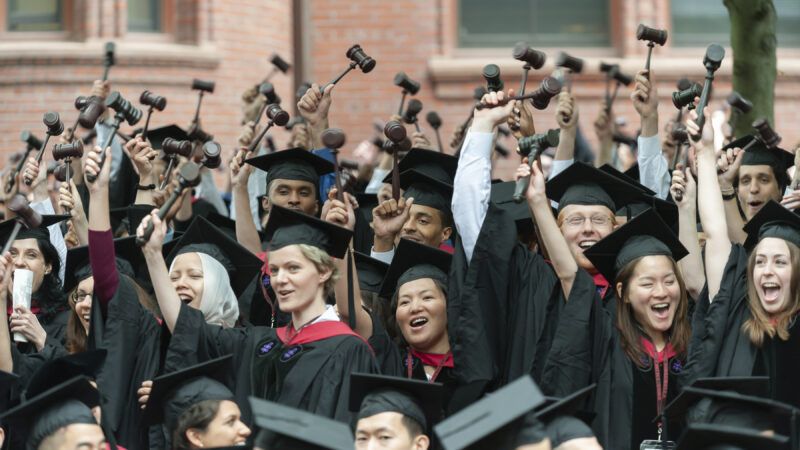Universal Student Debt Forgiveness Is Regressive, Say Economists
Plus: Uber abandons self-driving autos, on being "both loud and silenced," and more...

Wiping out student loan debt for American college graduates would benefit the wealthy much more than it benefits less privileged students, according to a new working paper from the National Bureau of Economic Research. "Blacks and Hispanics would also benefit substantially less than balances suggest," the authors say.
In the paper, titled "The Distributional Effects of Student Loan Forgiveness," economists Sylvain Catherine and Constantine Yannelis conclude that universal student loan "forgiveness would benefit the top decile as much as the bottom three deciles combined."
Not all student-loan-forgiveness schemes would have the same effects, they note:
There are a number of ways in which debt can be discharged, with important distributional implications. For example, forgiveness can be universal, capped or targeted to specific borrowers. These debt cancellation policies can benefit different socioeconomic and ethnic groups. This paper explores their distributional impacts. We find that the benefits of universal debt forgiveness policies largely accrue to high-income borrowers, while forgiveness through expanding income-contingent loan plans instead favors middle-income borrowers.
Income-contingent payment plans and loan forgiveness schemes already exist in the U.S. Increasing enrollment in such plans "or increasing these plans' generosity is another option for targeted debt forgiveness," and one that would actually benefit middle-income debtors more than their wealth counterparts, the authors suggest.
But full or partial loan forgiveness regardless of income and loan size would be "highly regressive, with the vast majority of benefits accruing to high-income individuals," they conclude.
Reason's Mike Riggs offers some better ideas for student loan reform here.
FREE MINDS
"It is possible for a person—or at least their views—to be both loud and silenced," suggests Tom Chivers at UnHerd:
In which I muse about the "I'M BEING SILENCED! I cry from the front page of a national newspaper" trope, and why I think it doesn't stand up https://t.co/AbP7uCoPAW
— Tom Chivers (@TomChivers) December 8, 2020
FREE MARKETS
Uber is abandoning self-driving cars. Uber "has sold its self-driving car division to Aurora Innovation and has taken a stake in the startup as it looks to pivot away from creating its own autonomous vehicles and focus on profitability following a year of being decimated by the pandemic," reports The Street.
QUICK HITS
https://twitter.com/JayCaruso/status/1336058846616424448
- Why Thomas Massie is wrong about the federal marijuana legalization bill.
- On free speech and Section 230, outgoing FCC chairman Ajit Pai says he is "pessimistic about where this goes in the future."
- L.A.'s new district attorney is making some much-needed changes:
The new top prosecutor in LA. On his first day. Ends: Cash bail. Sentencing enhancements. 3 strikes. Stops prosecuting juveniles as adults. More. And makes all changes for tens of thousands *retroactive. Meaning those already imprisoned will benefit. A good start. https://t.co/DsS2gjmOSo
— Scott Hechinger (@ScottHech) December 8, 2020
- How Scottish sex workers are fighting for their rights.
- Rep. Alexandria Ocasio-Cortez is selling "Tax the Rich" sweatshirts for $58 apiece.


Show Comments (362)